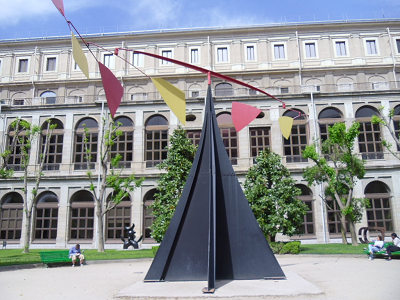| Back to Back Issues Page |
 |
|
Your May Useful Community Plus May 04, 2022 |
This Month: Census, Good Arguing, Public Art, Good Reads
Visit us at the Useful Community Development Website.
May, 2022 
If you think arguments are to be avoided at all costs, you must be having a miserable time right now participating in civic life at any level. Maybe a better approach will be to learn to have better arguments. Check out this organization's upcoming trainings--the first one is tomorrow! 
It's a great time for thinking about heating up your public spaces with art. We wanted to call some relevant resources from our website to your attention. The place to start is with the art in public places page, where we describe the artist selection process in some detail. That's the toughest part about public art. Also helpful will be pages about community murals, arts and economic development, something called community attachment, and for some of you, small town character. Our site visitors have contributed some good articles on this topic (or asked good questions) over the years. Our favorites are about the correct scale for public sculpture, a street festival featuring art, amphitheaters as exciting public spaces, and creating impactful public fountains. OK, these last two are a stretch, but loosely related to the arts for sure, depending on how they are implemented. 
There's a big debate about how to deal with homelessness, which is creating havoc in cities large and small right now. This is the best summary we've seen for a while. For example, it describes how Sacramento has considered whether to arrest people that don't move to a shelter bed when offered. Foreclosure filings are up, but this article says it's not as alarming as it seems. A new piece about what the author calls trauma-informed community building is worth passing on to developers in your community who want to put a timeline on how long community relationship-building needs to take. This is also very worthwhile reading for elected officials and planning commissions. The "trauma-informed" part refers to communities that have been repeatedly exposed to broken promises. (We understand the sentiment, but will coining unnecessary jargon ever stop?) If you think your community is well-positioned to deal with people relocating due to climate change, you will want to start tracking the PLACE Initiative. This small organization has identified more than 600 potential "receiving cities" that can handle people relocating from more at-risk cities, and also written a related community principles guide. Even if you think you don't want climate migrants, maybe you should find out if your city is on the list! The Aspen Institute has done some good work on youth opportunity. Check out some of these good ideas. Here's a good read about the harm of over-dependence of Native American tribes on gambling, a/k/a gaming. Actually it's a good recommendation for economic diversification for every community. For a good discussion of converting poorly performing or vacant strip malls into mixed-use developments including housing, see this article. Ever wonder what a volunteer hour is worth in dollars and cents? The Independent Sector calculates that every year. See the 2022 value of a volunteer hours here. They explain the methodology. This goes beyond a curiosity; these numbers can be valuable in applying for grants for your community organization if you can track your volunteer hours. We liked this discussion of the possible use of overlay zones to help prevent housing displacement. If you don't know what an overlay zone is, the article explains. Feel free to reply with comments. But if you are asking a question you would like answered, use the public-facing community development questions page on the website. We'll be back on a Thursday in June. |
| Back to Back Issues Page |
